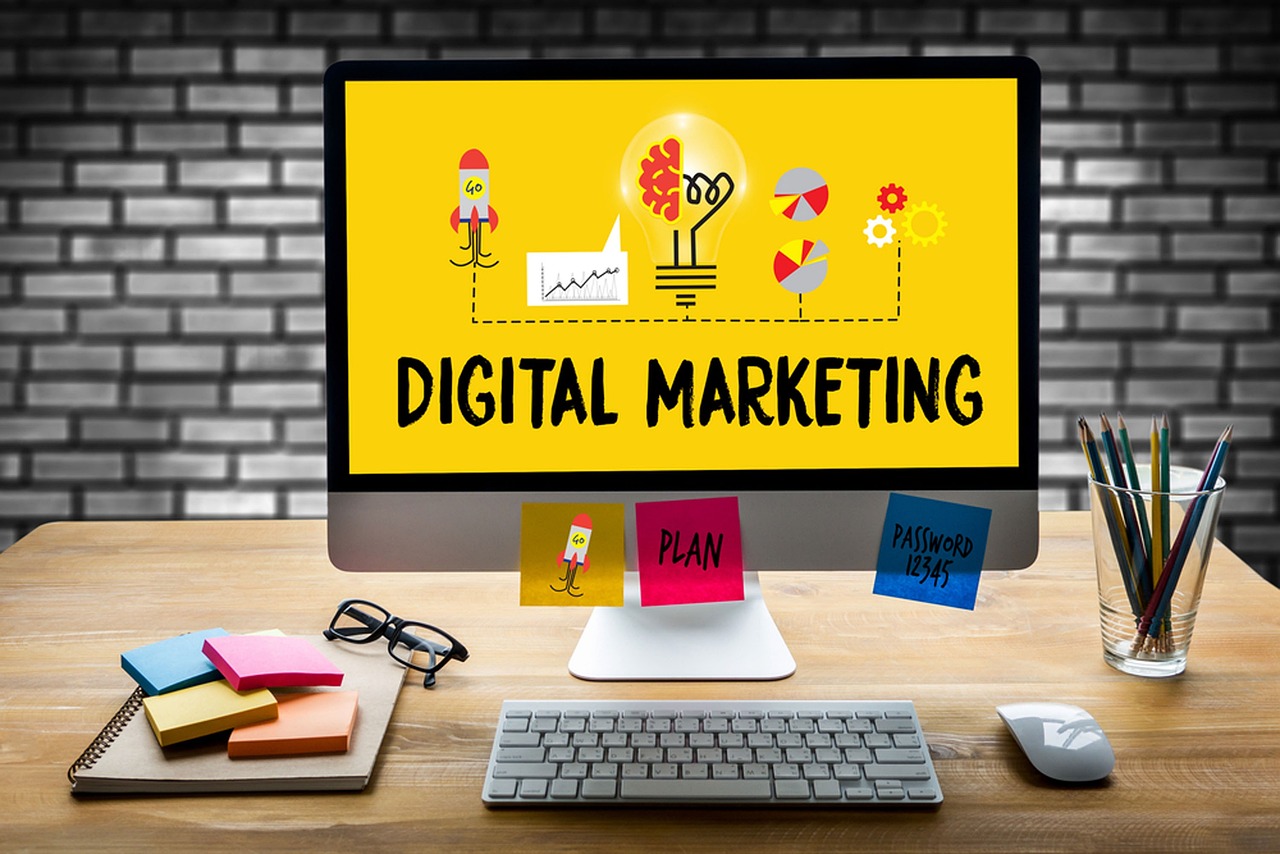How Does Affiliate Marketing Work?
Affiliate Marketing: Building Partnerships for Mutual Profit What is Affiliate Marketing? Businesses collaborate with individuals (affiliates) to market their goods and services through affiliate marketing, a performance-based marketing approach. Every sale, lead, or action brought about by an affiliate's marketing efforts earns them a commission. This strategy increases sales by utilizing the affiliates' influence and reach, which benefits the company as well as the affiliate

How Does Affiliate Marketing Work? Joining an Affiliate Program: Businesses set up affiliate programs and provide unique tracking links to their affiliates. Promoting Products: Affiliates promote the products using various channels such as blogs, social media, email marketing, or websites. Tracking Sales: When customers click on the affiliate's unique link and make a purchase, the sale is tracked using cookies or other tracking mechanisms. Earning Commissions: Affiliates earn a percentage of the sale or a fixed amount for each successful referral. Benefits of Affiliate Marketing Cost-Effective: Businesses only pay for actual sales, reducing marketing risk. Wider Reach: Affiliates help reach a broader audience by leveraging their own networks. Performance-Based: Affiliates are motivated to drive sales, ensuring effective promotion. Challenges of Affiliate Marketing Finding Quality Affiliates: Identifying trustworthy and effective affiliates can be challenging. Tracking and Reporting: Ensuring accurate tracking and reporting of sales can be complex. Managing Relationships: Maintaining positive relationships with affiliates requires ongoing communication and support. Content Marketing: Creating Value Through Information What is Content Marketing? With the goal to draw in and hold on to a precisely defined audience, content marketing is a strategic marketing method that focuses on producing and disseminating worthwhile, timely, and consistent content.
. The goal is to drive profitable customer action by building trust and authority through high-quality content. Types of Content Marketing Blog Posts: In-depth articles providing valuable information, tips, and insightsVideos: Captivating visual content that tells tales, illustrates ideas, or shows off items. Infographics: Eye-catching visuals that make difficult material easier to understand.
Podcasts: Audio content that offers discussions, interviews, or educational material. eBooks and Whitepapers: Comprehensive guides or reports on specific topics. Benefits of Content Marketing Creates Trust: Superior content promotes your company as an authority in your field.
. Improves SEO: Consistent content creation improves search engine rankings and organic traffic. Engages Audience: Engaging content keeps your audience interested and encourages interaction. Generates Leads: Valuable content attracts potential customers and drives lead generation. Challenges of Content Marketing Time-Consuming: Creating high-quality content requires significant time and effortConsistency: It may prove difficult to stick to a regular posting schedule.
. Measuring ROI: Quantifying the return on investment for content marketing can be difficult. Social Media Marketing: Connecting with Your Audience Online What is Social Media Marketing? Social media marketing involves using social media platforms to promote your products or services, engage with your audience, and build your brand. It encompasses both organic (unpaid) and paid strategies to reach and interact with potential and existing customers. Key Social Media Platforms Facebook: Ideal for building communities and sharing a variety of content. Instagram: Visual platform perfect for sharing images and videos. Twitter: Great for real-time updates and engaging in conversations. LinkedIn: Professional network suited for B2B marketing and thought leadershipTikTok: Well-known for brief, imaginative films aimed at younger viewers.
Benefits of Social Media Marketing Increased Brand Awareness: Social media platforms amplify your brand's reach. Customer Engagement: Direct interaction with customers fosters relationships and loyalty. Targeted Advertising: Social media ads allow precise targeting based on demographics and interests. Real-Time Feedback: Immediate feedback from customers helps improve products and services. Challenges of Social Media Marketing Keeping Up with Trends: Social media trends evolve rapidly, requiring constant adaptation. Managing Multiple Platforms: Handling various platforms simultaneously can be overwhelming. Dealing with Negative Feedback: Addressing negative comments and reviews publicly requires tact and responsiveness. By understanding and effectively implementing these three marketing strategies, businesses can create a comprehensive digital marketing plan that drives growth, engagement, and profitability. Search Engine Optimization (SEO) is the process of optimizing your website to improve its visibility in search engine results pages (SERPsThe objective is to rank higher for appropriate search queries in order to attract organic (non-paid) traffic to your website.
. SEO involves various strategies and techniques to make your website more attractive to search engines like Google. Key Components of SEO Keyword Research: Identifying and targeting specific words and phrases that potential customers use to search for products or services related to your business. Optimizing individual web pages to rank better and garner more relevant traffic is known as on-page SEO.
This includes using proper keywords, meta tags, headers, and content optimization. Off-Page SEO: Increasing the authority of your website by obtaining backlinks from other trustworthy websites. This covers influencer outreach, social media marketing, and link development. Making sure your website satisfies search engines' technical standards is known as technical SEO.
This includes improving site speed, mobile-friendliness, and proper indexing. Content Creation: Producing high-quality, relevant content that addresses the needs and interests of your audience, which helps to attract and retain visitors. Benefits of SEO Increased Visibility: Higher rankings in search results lead to more visibility and potential trafficCost-Effective: SEO is a cost-effective method because organic traffic is free, in contrast to paid advertising.
Credibility and Trust: High rankings signal to users that your site is a credible and trustworthy source of information. Long-Term Results: While SEO takes time, the results can be long-lasting compared to paid advertising. Challenges of SEO Constantly Changing Algorithms: Search engines frequently update their algorithms, requiring continuous adaptation. Competitive Nature: High competition for popular keywords can make it difficult to rank. Time-Consuming: Effective SEO requires ongoing effort and patience to see results. Influencer Marketing: Leveraging Trust and Influence What is Influencer Marketing? Influencer marketing involves partnering with individuals who have a strong following and influence within a particular niche or industry. These influencers promote your products or services to their audience, leveraging their credibility and relationship with their followers to drive brand awareness and sales.




